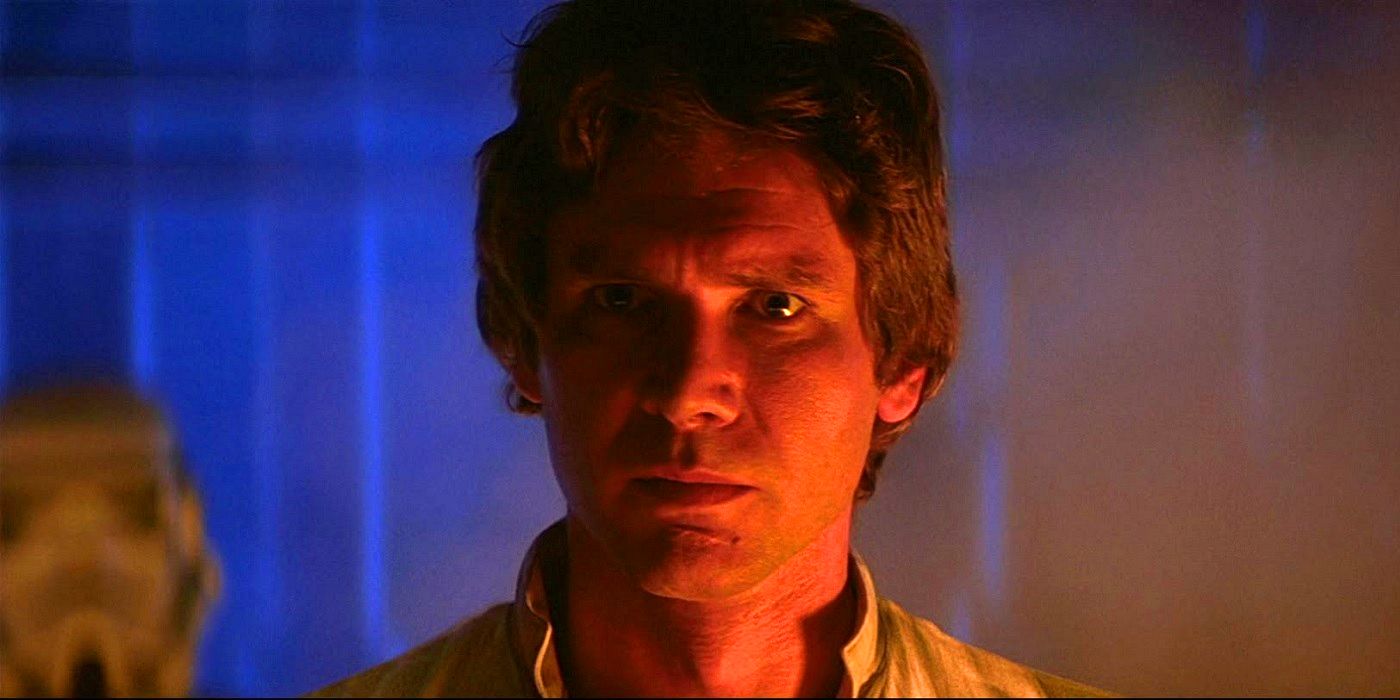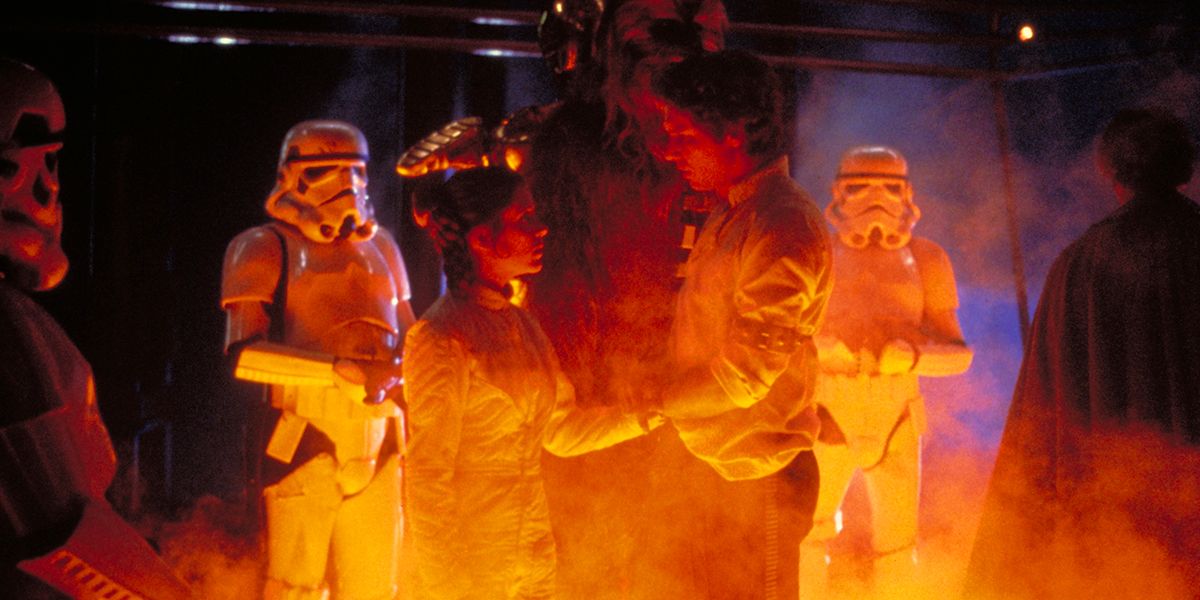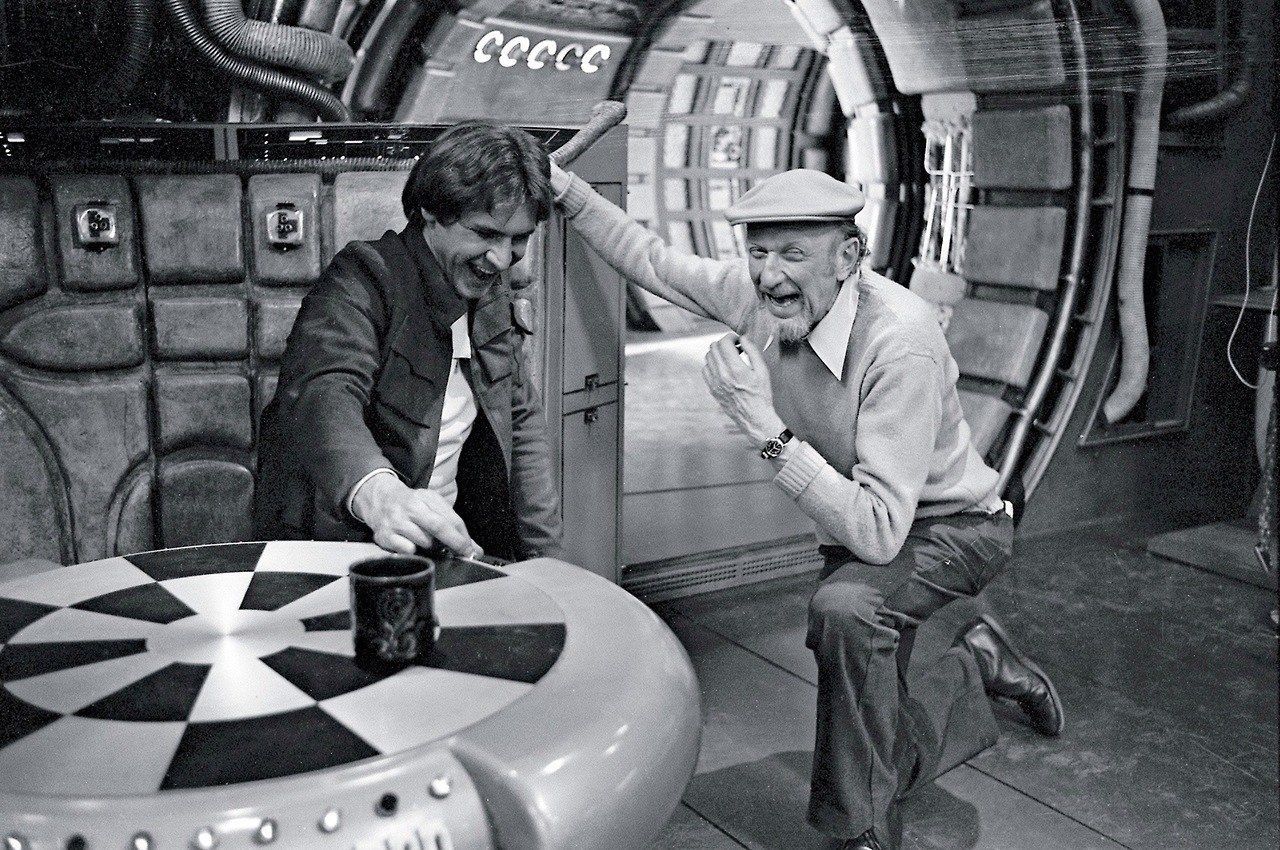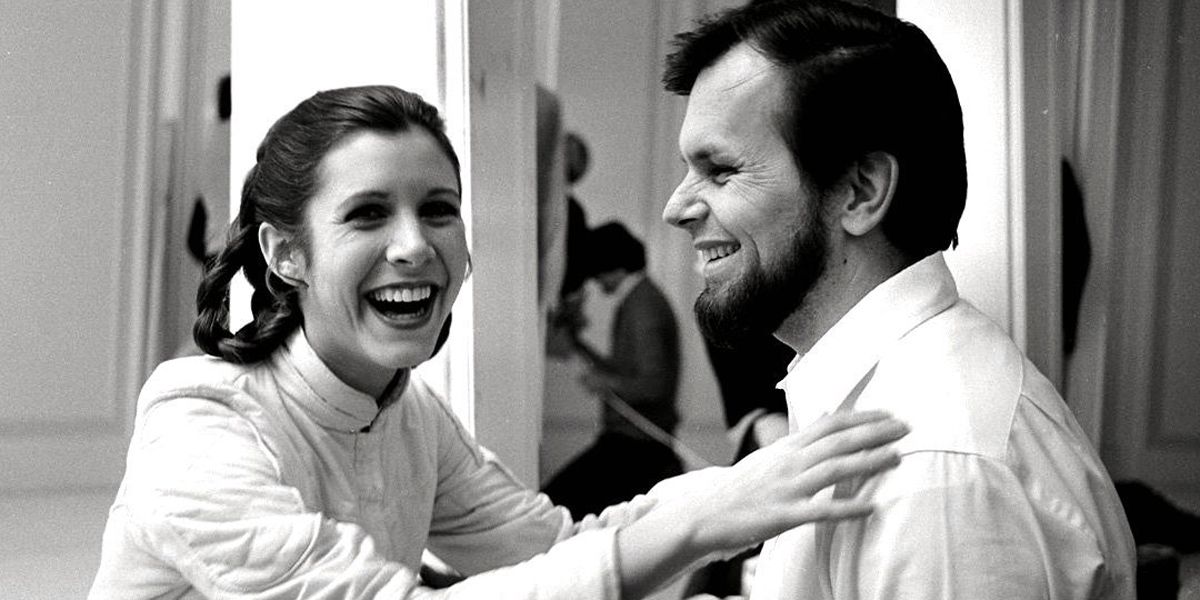Today marks the 40th anniversary of the release of The Empire Strikes Back, the first Star Wars sequel, and generally held by critics as the best film of the series. One of its most famous scenes, in which Leia says "I love you," and Han Solo replies, "I know," drew a surprisingly negative reaction from one of the stars.
Carrie Fisher, who famously played Princess (later General) Leia Organa, had a major problem when it came to how co-star Harrison Ford and director Irvin Kershner developed Han's response before he's encased in carbonite.
Throughout the original trilogy, there were constant debates and rewrites. Some of those decisions continued to perplex filmmakers even after release (like George Lucas' back and forth about whether Han should try to kill the bounty hunter Greedo before the mercenary tries to kill him).
The "I know" scene was a perfect example of this back-and-forth mentality. The whole idea of the middle film in the original trilogy is that it was supposed to have a bit of a downbeat ending to set up the eventual triumph in the trilogy's final film. The heroes are betrayed when visiting one of Han's old friends, Lando Calrissian, and Han is taken prisoner by the bounty hunter Boba Fett (working with Darth Vader). Han is then encased in carbonite for his trip back to Tattooine, where Jabba the Hutt is waiting for him (thereby completing the bounty on Han referenced in the original film in the Greedo sequence).
Having two of your stars declare their love for each other is already a big deal, no matter what else the circumstances are, but this was particularly tricky because Han was about to be encased in metal. Therefore, Kershner had to determine whether the scene should be played as a death sequence or with a little more hope. Han being encased in carbonite didn't kill him, as "carbonite freezing" is supposed to be similar to placing someone into cryogenesis, but if he were never released from suspended animation, then he was effectively dead. So it was certainly a bleak scene, and Kershner wasn't sure how, exactly, they should temper the bleakness.
The script originally had Han and Leia kiss, and then she says, "I love you. I couldn’t tell you before, but it’s true.” Han replies, "Just remember that, ‘cause I’ll be back.” Kershner at first believed "I'll be back" was of paramount importance, as it would set up fans for the final film in the trilogy. He even joked that the line was almost "contractual" to include, because otherwise the scene was too depressing. The issue with Han telling Leia he'll be back is that obviously he had no idea whether he actually would be back and, thus, including it was perhaps too hopeful for the situation.
What's amazing is that journalist Alan Arnold happened to be on set the day Ford and Kersher were debating the line, and he recorded it all as part of his work on his book, Once Upon a Galaxy: A Journal of the Making of The Empire Strikes Back.
Here is how Kersher and Ford happened upon the "I know" line:
Ford: I think I should be manacled. It won’t stop the love scene. I mean, I don’t have to put my arms around Leia to kiss her. I can’t see how they would indulge in more than a straight kiss in such circumstances. It has to be rough and brisk and over with.
Kershner: Absolutely. I don’t intend to mess around … “What’s up, buddy boy?” … in the love scene.
Ford: As I pass by her, I think Leia ought to say very simply, “I love you.”
Kershner: (Tries it out) “I love you.” And you say, “Just remember that, Leia, because I’ll be back.” You’ve got to say, “I’ll be back.” You must. It’s almost contractual!
Ford: If she says “I love you,” and I say “I know,” that’s beautiful and acceptable and funny.
Kershner: Right, right.
So that was how they developed the line. The problem, of course, is that major change was developed without the involvement of the other major star in the scene. Fisher went on to become an acclaimed screenwriter, specifically as a script doctor whom filmmakers would bring in to do uncredited work improving dialogue. So to have her cut out of such a major change in an important scene was distressing for her.
Once again, Arnold was there to capture it all when Ford informed Fisher of the new dialogue. She went to Kershner to vent:
Fisher: You talk to Harrison about the changes, but I always feel that you do it behind my back.
Kershner: No, no, no, we haven’t rehearsed it yet.
Fisher: But I didn’t know until now.
Kershner: I couldn’t tell you before.
Fisher: I would just like to be there when you decide to change things.
Kershner: (Getting angry) You weren’t here to be there.
Fisher: (Shouts) I was in the studio!
Kershner: Okay. Okay.
Fisher: I yelled at Harrison about the changes.
Kershner: Don’t yell at Harrison. Yell at me.
Fisher: There’s no reason for me to be mad at Harrison.
Kershner: All right, all right. Okay!
Fisher: But when he came to me with the changes, I got mad at him and it screws us up.
She further explained:
Fisher: Harrison shouldn’t have to come to me with the changes. You should.
Kershner: He was eager to.
Fisher: I know he was. And now I have to perform at half an hour’s notice scenes that have been all changed.
Kershner: Your performance is not changed.
Fisher: All I’m asking is to be invited to watch you guys get a scene together. It may not center around me, like this one doesn’t, but I’m involved in it.
Kershner: Okay. Are you clear about it now?
Fisher: Yes, the only thing I’m not clear about is…
Kershner: (To himself) Jesus, what a day! I’ve got problems with the actors. Everybody’s furious with everybody else…
Obviously, Fisher then went and sold the scene beautifully, and it became an iconic moment in film history. However, you can certainly understand where she was coming from, as it is a major change to a scene developed without her input. That she had a great ear for dialogue herself just compounded the aggravation of not being included in the discussions.




